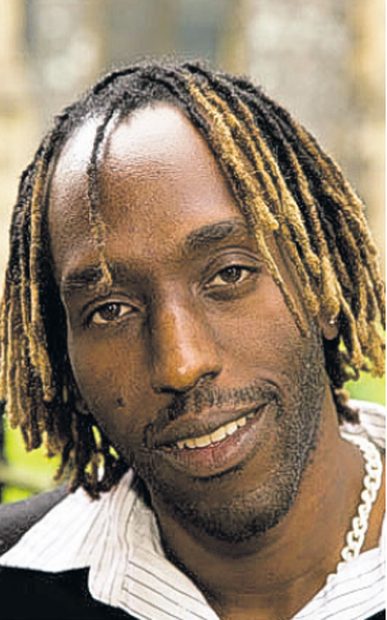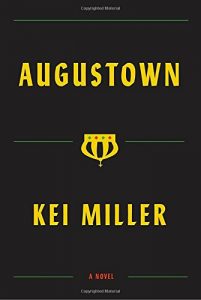Lundgren’s Lounge: “Augustown,” by Kei Miller
categories: Cocktail Hour / Guest Columns / Reading Under the Influence
Comments Off on Lundgren’s Lounge: “Augustown,” by Kei Miller

 Our story takes place in Jamaica, an island riven by the cleaver of colonialism and imperialism, a land of two separate and unequal societies. Early on we hear the tale of the Flying Preacherman as narrated by Ma Taffy: “The preacherman’s name was Alexander Bedward, and is him who did tell we one day that him was going to fly.” It seems that Beward has begun to float up from bed, to rise to the ceiling, because the “stone’ has somehow, inexplicably, been lifted from his head, the very stone Ma Taffy tells us, “… that poor people like us born with… a stone that sits right on top of our heads. The one that stops us from rising.”
Our story takes place in Jamaica, an island riven by the cleaver of colonialism and imperialism, a land of two separate and unequal societies. Early on we hear the tale of the Flying Preacherman as narrated by Ma Taffy: “The preacherman’s name was Alexander Bedward, and is him who did tell we one day that him was going to fly.” It seems that Beward has begun to float up from bed, to rise to the ceiling, because the “stone’ has somehow, inexplicably, been lifted from his head, the very stone Ma Taffy tells us, “… that poor people like us born with… a stone that sits right on top of our heads. The one that stops us from rising.”
Fast forward to the present and Bedward’s legend becomes the backdrop for a mesmerizing cast of characters and their stories, all woven around the tragedy suffered by Kaia, a young Rastafarian who is Ma Taffy’s grandson. Kaia has been unjustly shorn of his dreadlocks by Mr. Saint-Josephs, a schoolteacher tormented by his role as overseer, a Black man promoting the racist ideology of the oppressor. The unceremonious barbering sets in motion a series of events culminating in the “autoclaps,” which Miller describes as “the collapse of the heart, a small apocalypse… even to say it causes a sense of dread.”
The author writes with the exquisite fluency of the poet that he is. His magnificent novel deftly weaves the history of Rastafarianism and the racial politics of Jamaica and the legacy of colonialism around a narrative of spellbinding tales. Augustown speaks to the power of stories and their role in the survival of indigenous and oppressed communities. For as Leslie Marmon Silko so eloquently describes it in Ceremony, “Stories… aren’t just entertainment… they are all we have to fight off illness and death… Their evil is mighty but it can’t stand up to our stories. So they try to destroy the stories, let (them) be confused or forgotten. They would like that because we would be defenseless then.”
Augustown is a bulwark against those forces that attempt to erode our power.
#
 Bill Lundgren is a voracious reader who writes book reviews in hopes of sharing his enthusiasms with fellow readers. He lives in Portland, Maine with a wild menagerie of dogs and cats and birds and his wife Carol, the veterinarian. He teaches writing and literature at Southern Maine Community College.
Bill Lundgren is a voracious reader who writes book reviews in hopes of sharing his enthusiasms with fellow readers. He lives in Portland, Maine with a wild menagerie of dogs and cats and birds and his wife Carol, the veterinarian. He teaches writing and literature at Southern Maine Community College.

